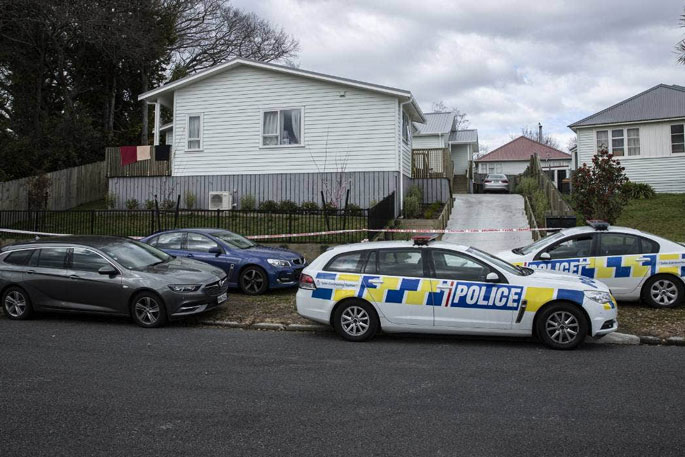Murder is the starting point for deliberations over Melody Ngawhika's killing of her six-month-old son, a judge has told the jury.
There's no dispute that Ngawhika suffocated Elijah Abraham Ngawhika in August 2021, but jurors must decide if it was murder, manslaughter or meets the 85-year-old definition of infanticide.
Justice Pheroze Jagose began his summing up on Friday as the defence closed its case at the High Court in Rotorua after five days of prosecution and defence evidence, which covered Ngawhika's disturbed state of mind and 'very abusive background”.
Jagose told the jury of eight men and three women – one juror was dismissed over health concerns – that to reach a verdict of murder they would have to be sure that Ngawhika intended to kill her son.
He said if they believed she killed him, but were unsure of intent, a manslaughter verdict could be reached.
He also offered a third option, noting 'infanticide is an unusual offence”, and reading the text from the Crimes Act 1961 defining it.
'Where a woman causes the death of any child of hers under the age of 10 years in a manner that amounts to culpable homicide, and where at the time of the offence the balance of her mind was disturbed, by reason of her not having fully recovered from the effect of giving birth to that or any other child, or by reason of the effect of lactation, or by reason of any disorder consequent upon childbirth or lactation, to such an extent that she should not be held fully responsible, she is guilty of infanticide, and not of murder or manslaughter, and is liable to imprisonment for a term not exceeding three years.”
'Those words haven't changed since 1937,” he said.
He also told the jurors that despite the case involving the death of a child, they should not let either prejudice or sympathy sway their decision – and that the onus rested squarely on the Crown to prove her guilt.
Earlier in the day, the court heard evidence from forensic psychologist Dr Peter Dean, who told the jury Ngawhika told him she only remembers 'standing over her son's dead body”.
The key issue, according to both the Crown and defence, was whether she murdered her son or whether she had committed infanticide.
Dean was giving evidence as the sole defence witness, and described two interviews he undertook with Ngawhika, telling the jury she was first referred to mental health services in 2009 suffering from depression, anxiety and post-traumatic stress disorder.
Dean said Ngawhika had suffered from 'a very abusive background”.
He said the return into her life of a figure from the past who had abused her previously, whose identity is legally suppressed, was 'an obvious trigger to her trauma”.
Dean said that person, who had mental health issues too, 'often talked about her children being demons and called her a demon”.
'Clearly there were very, very strange ideas in her head, and she described psychotic experiences,” Dean said.
He said Ngawika also told him she believed her phone had been 'tapped” by the Government, and that she had seen 'demons on the television”.
He said at one interview she told him 'the only thing she can recall is standing over her son's dead body”.
Earlier in the trial the jury heard evidence from forensic psychologist Dr Jeremy Skipworth, who referenced a video shown to the jury on Tuesday of Ngawhika's police interview, where she said she believed she may have auctioned her daughter online.
He also referred to the moment she tore up a piece on paper on which she'd been asked to draw a map of her home as 'pretty clear episodes of unusual paranoia”.
He said there was 'no real issue” that Ngawhika 'had a disturbed mind”.
He said the difficulty with an infanticide charge was it required the mental disturbance to be as a direct result of childbirth.
'It's questionable whether there is a significant connection to childbirth,” he said.
'But there may be an argument ... it's a question for the jury.”
The trial continues.



0 comments
Leave a Comment
You must be logged in to make a comment.